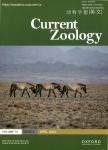The Evolutionary Strategy of Deception
The Evolutionary Strategy of Deception作者机构:Centre of Excellence in Biological Interactions Department of Biological and Environmental Science P.O. Box 3540014 Department of Biological and Environmental Science P.O. Box 35 40014 University of Jyv/iskylii Finland Department of Biological Sciences Simon Fraser University 8888 University Drive Burnaby BC V5A 1 S6 Canada
出 版 物:《Current Zoology》 (动物学报(英文版))
年 卷 期:2014年第60卷第1期
页 面:1-5页
核心收录:
学科分类:0710[理学-生物学] 12[管理学] 1201[管理学-管理科学与工程(可授管理学、工学学位)] 07[理学] 08[工学] 0839[工学-网络空间安全] 070105[理学-运筹学与控制论] 0701[理学-数学] 081201[工学-计算机系统结构] 0812[工学-计算机科学与技术(可授工学、理学学位)]
基 金:funded by the Finnish Academy for C. Lindstedt funded by the Finnish Academy for M. Mokkonen
主 题:欺骗 进化策略 亚里士多德 生殖策略 动物学 笛卡尔
摘 要:1 A Brief History of Deception The conceptual roots of deception began to sprout at the dawn of zoology, when Aristotle (350 CE) discussed his observations of the 'deceitful' reproductive tactics of cuckoos and partridges in his classic work The History of Animals. However, the scientific origins of deception were cemented in Descartes' (1641) Meditations on First Philosophy, in which he reasoned: All that I have, up to this moment, accepted as possessed of the highest truth and certainty, I received either from or through the senses.



